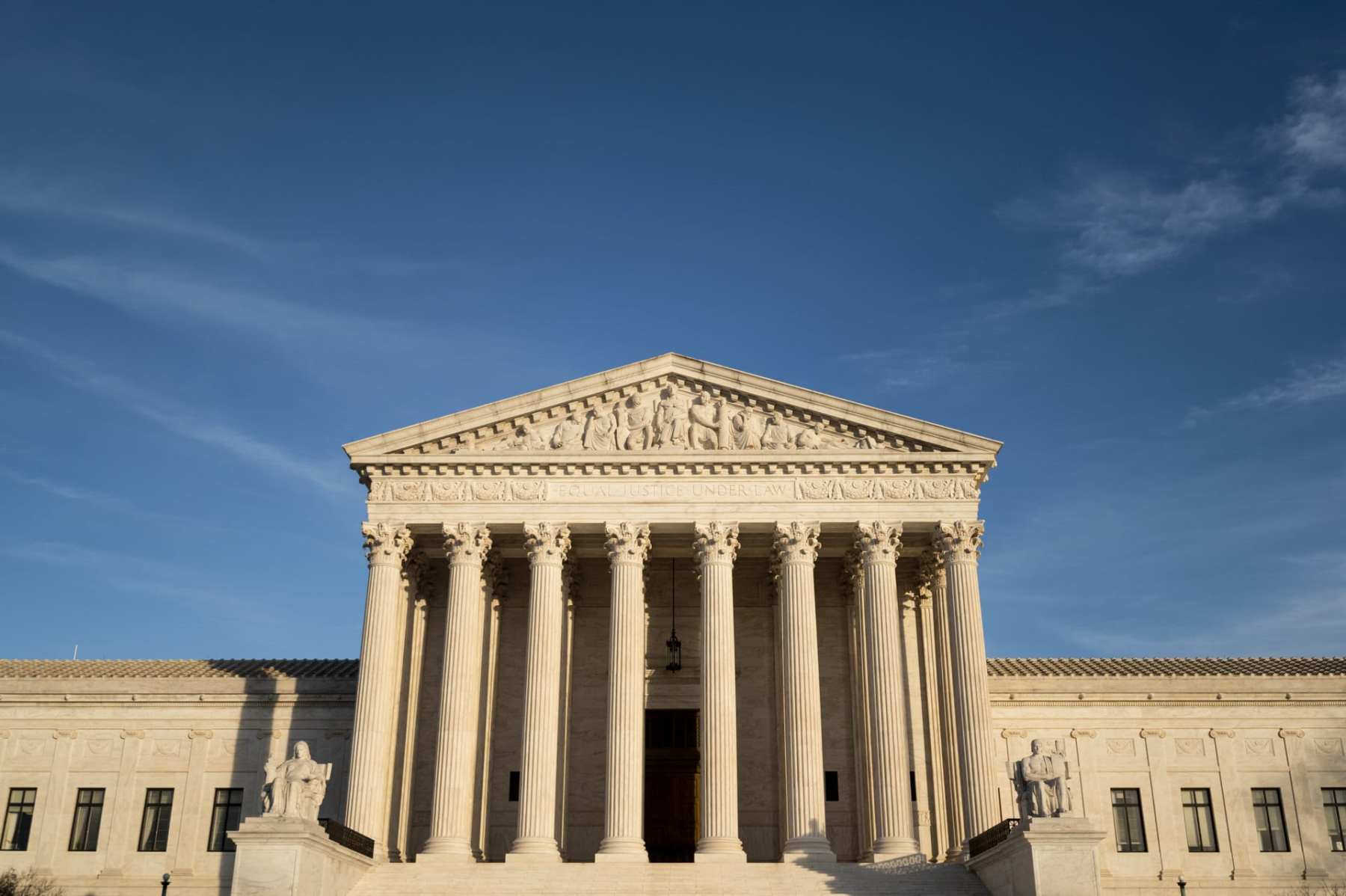Last week’s Supreme Court ruling on medication abortion could have vast and detrimental health consequences, especially as the COVID-19 pandemic rages across the country, medical experts said.
In Tuesday’s decision, the court held that patients must pick up mifepristone — part of the two-pill regimen — in person from a hospital or medical practice. The ruling reversed a May injunction blocking federal requirements that the drug be dispensed in person, because doing so would be more dangerous in the pandemic.
Following the May ruling, which came from a case brought by the American College of Obstetricians and Gynecologists (ACOG), health practices across the country moved to provide medication abortion through telemedicine.
That decision kept with a larger pandemic-induced shift toward virtual care, as health professionals have sought to minimize how often people have to leave their homes. And it accelerated a debate that has been underway for years: whether health officials should eliminate the in-person requirement for dispensing mifepristone altogether.
It’s unclear how long-term the implications might be. The court’s ruling weighs in on the enforcement of specific guidelines from the Food and Drug Administration, which extend beyond the coronavirus crisis. President-elect Joe Biden, who campaigned promising to protect abortion rights, could issue guidance to the FDA that would encourage it to stop enforcing the in-person requirements, at least during the pandemic.
Data is still being gathered to measure just how many people used the pandemic’s virtual option for medication abortions. Many states have laws separate from the federal regulation, barring telemedicine as a way to provide medication abortions. Still, anecdotally, doctors say that in states without those specific restrictions, the impact was mammoth.
“We weren’t doing any telemedicine abortion prior to the pandemic,” said Dr. Honor MacNaughton, a Boston-based physician. “Now the majority of our care is provided by telemedicine, especially as COVID rates continue to surge here in the Boston area. Our experience with abortion care mimics that.” She estimates that now, about 80 to 90 percent of her health system’s medication abortions use telemedicine.
MacNaughton fears the court’s ruling could undercut access to medication abortion, or mean people seeking this option must expose themselves to COVID-19. And the impact, some physicians worry, won’t be even — research on previous abortion restrictions suggests that imposing limitations on how people can access medication abortion usually affects Black women and Latinas at higher rates, especially compared with White women.
“The people who are affected most are those who historically have always faced the most barriers: people coming from low-income communities and communities of color, who already have the highest barriers to child care or transportation or getting off of work,” MacNaughton said.
Medication abortion, which was approved in the United States in 2000, requires two pills: mifepristone, which the FDA requires be given by a physician, and misoprostol. Both can be taken at home.
People who are up to 11 weeks pregnant can opt for a medication abortion instead of a surgical procedure. About 60 percent of people who get abortions by 10 weeks choose medication abortions, according to data compiled the Guttmacher Institute.
The debate over providing the first pill in person, or whether it can be prescribed virtually and mailed, isn’t new. When the pill was first approved in the United States, evidence was still emerging to demonstrate what kind of adverse events — if any — people might experience when taking it.
The data is clearer now, researchers say. In 2019, former FDA commissioner Jane Henney — who headed the agency when it approved mifepristone — called for the government to rethink its approach to the pill, suggesting that there was, at this point, little need for the restrictions on when and how it is distributed.
“Most adverse effects are mild, such as cramping or abdominal pain, and the rate of severe adverse events is very low: such events occur in less than 0.5% of patients, according to the FDA. Many drugs marketed in the United States have higher adverse event rates and are not subject to restricted distribution,” Henney wrote in a 2019 op-ed for the New England Journal of Medicine.
The American Civil Liberties Union, which argued in court on behalf of ACOG, is now calling on the FDA to review its guidelines restricting how medication abortions might be distributed, said Lorie Chaiten, an attorney who directs the ACLU’s reproductive rights project.
That said, even if the federal guidance is changed, that doesn’t necessarily mean state-based restrictions on when and how the pill is provided would go away. Currently, 20 states have laws requiring the pill be provided in person — Ohio’s new restriction was signed into law Jan. 9. They’re part of a bevy of abortion restrictions that have become law in the past years, despite heavy criticism from many reproductive health experts and medical practitioners. And many more such restrictions are expected to emerge this coming year.
Research indicates that opening the door to telemedicine could expand access to the treatment. A 2019 study published in the journal Obstetrics and Gynecology suggested that as much as twice as many physicians might be willing to prescribe medication abortions if prescriptions could be mailed, and doctors themselves didn’t have to provide the pill in person.
“Having to stock the medication in advance in the clinic is a barrier to private OB/GYNs, to primary care physicians who may not have many patients who need a medication abortion,” said Daniel Grossman, a professor of obstetrics and gynecology and reproductive science at the University of California San Francisco and one of the the study’s authors. “The medication is expensive. Some doctors say they don’t want to get on the list with the distributor that would identify them as an abortion provider — which they see as a risk of violence.”
The telemedicine option also could make abortion access easier for patients who otherwise may not have been able to schedule a visit to the doctor, because of challenges getting transportation or time off from work or child care duties, MacNaughton said. It also means patients don’t have to wait until the next doctors’ appointment is available in order to get a pill — it’s treated more like other prescriptions.
“Besides the logistical pieces, one thing that impressed me when we were able to do the medication abortion by telemedicine was how normal it felt for people,” she said. “They assume, ‘Oh I just get this medication like I can get any other medication.’”






